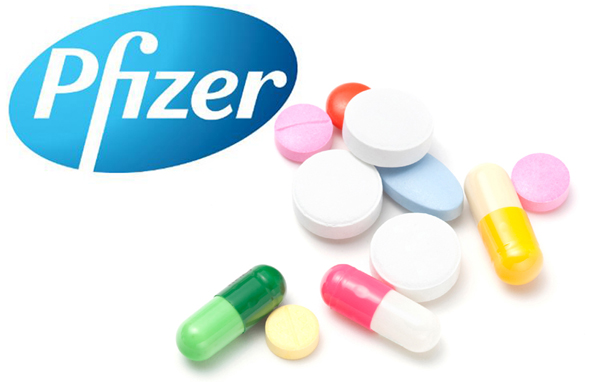Pfizer has come under fire in many countries for hiking up drug prices, and it raised controversy in the Korean market, too, for astronomical drug pricing of its breast cancer drug Ibrance.
Local patients have expressed their frustrations regarding the expensive breast cancer drug that will cost around 5.5 million won ($4,900) a month. Patient groups have urged the government and Pfizer to provide affordable access to the drugs. Pfizer has resumed price negotiations following the controversy.
If HIRA and Pfizer화이자 can agree upon drug negotiations, Ibrance will be the first-line of treatment for primary endocrine therapy in combination with Femara (ingredient: letrozole). Korea Health Insurance Review and Assessment Agency (HIRA) evaluated the application of Ibrance last month, causing optimism for insurance coverage.
■ Related: Regulators deem Pfizer’s price for cancer therapy too high

The company had also come under fire for “discriminating against Korean consumers” by a group of breast cancer patients. The company had reportedly covered the costs of Ibrance for patients in the United Kingdom for up to five months but has refused to do the same in Korea.
This is not the first time patients and insurance agencies have pointed fingers to the U.S. pharmaceutical giant.
In the United Kingdom, Britain’s Competition and Markets Authority (CMA) slammed the U.S. pharmaceutical giant with a record $106 million fine last year for hiking its anti-epilepsy medication by 2,600 percent overnight.
Pfizer had raised the cost of its phenytoin sodium capsules from $3.57 to $85.06 in September 2012 after it “deliberately de-branded” the drug, according to the CMA.
The tablets are used to treat epilepsy to prevent and control seizures, acting as an important drug for around 48,000 patients in the U.K.
Because epilepsy patients taking these capsules should not switch to other products due to the risk of loss of seizure control, the NHS “had no alternative to paying the increased prices for the drug.”
The British regulator judged Pfizer broke competition laws by “abusing (their) dominant position by charging excessive and unfair prices” after the drug was de-branded, ordering the company to lower its prices.
The price finally fell to $68.06 in 2014. Meanwhile, it cost the Britain’s National Health Service annual spending for the drug from $2.5 million in 2012 to $63 million in 2013, according to the CMA.
“(Pfizer) deliberately exploited the opportunity offered by de-branding to hike up the price for a drug relied upon by thousands of patients. These extraordinary price increase has cost the NHS and the taxpayer tens of millions of pounds,” said Philip Marsen, chairman of the CMA’s case decision group for the investigation.
“Businesses are free to set prices as they see fit but those holding a dominant position should not abuse this situation and set prices that are excessive and unfair,” he added. “There is no justification for such rises when phenytoin sodium capsules are an old drug for which there has been no recent innovation or significant investment.”
In response, the company refuted the CMA’s findings saying the medication was a “loss-making product.” The CMA pointed out that such losses would have recovered within two months of the price rises.
Pfizer faced the criticism in the United States, too, for steep price hikes.
U.S. pharmaceutical companies had traditionally raised drug prices twice a year – around 10 percent at the beginning and middle of the year. However, increased public and political scrutiny has made it more difficult than before.
For example, Mylan’s price hike of its EpiPen auto injector by 15 percent in 2014 and 2015 set off a firestorm of public outrage at the pharmaceutical industry for setting unaffordable drug prices.
Martin Shkreli had also raised the price of its AIDS treatment from $13.50 to $750 a pill in the U.S., becoming "the most hated man in America" in 2015. His actions raised political and public awareness on pharmaceutical companies’ drug raising practices.
Allergan엘러간 CEO Brent Saunders has since pledged to keep its price hikes under 10 percent, which has spread throughout the industry as the “de facto pharma rule,” according to FiercePharma.
Several drugmakers had promised to cap annual price increases to less than 10 percent a year. Recent data shows prices on 30 medications have stayed under 10 percent this year, according to Bernstein Research, a leading investment management, and brokerage firm.
Pfizer has refused to do so.
According to the Financial Times, Pfizer raised the price of around 100 drugs by an average of 20 percent in the U.S. this year, drawing national outcry against the company for “getting away with murder,” as U.S. President Donald Trump once put it.
The price hike of 91 drugs on June 1 by around 5 to 13 percent was the second such move Pfizer made.
The two successive price rises raised the price of Pfizer’s Viagra from $57.94 to $73.85 in six months, according to the Financial Times.
Although Shkreli’s move had more direct, detrimental effect on its patients, experts cite that Pfizer’s aggregate drug hike has a far more damaging impact on the healthcare system than the triple-digit increase in one drug.
“This is the type of behavior that invites scrutiny from the U.S. lawmakers, health insurers, and employers," said Michael Rea, chief executive of Rx Savings Solutions.
A spokesperson for the company said, however, “Pfizer has always priced its drugs responsibly.”

